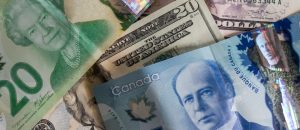Foreign exchange (forex) trading is the largest financial market in the world, with over $5 trillion traded every day. Forex trading involves buying or selling one currency in exchange for another. However, when you hold a forex position overnight, you may incur a swap expense or swap fee. In this article, we’ll explain what swap expense is in forex and how it affects your trading.
What is a swap expense?
A swap expense, also known as a rollover fee or overnight interest, is the cost to hold a forex position overnight. It is the interest rate differential between the currencies being traded. In forex trading, currencies are always traded in pairs. Each currency has an interest rate associated with it, set by the central bank of that country.
When you hold a forex position overnight, you are essentially borrowing one currency to buy another. The interest rate on the currency you are borrowing is subtracted from the interest rate on the currency you are buying. If the interest rate on the currency you are borrowing is higher than the interest rate on the currency you are buying, you will incur a swap expense. If the interest rate on the currency you are buying is higher, you will receive a swap credit.
How is swap expense calculated?
The swap expense is calculated based on the size of your position, the interest rate differential between the currencies being traded, and the number of days you hold the position. Most forex brokers will automatically calculate the swap expense for you and add it to your account balance.
For example, let’s say you are trading the EUR/USD currency pair and the current interest rate on the euro is 0.05%, while the interest rate on the US dollar is 0.25%. If you are long on EUR/USD and hold the position overnight, you will be charged a swap expense of 0.20% (0.25% – 0.05%). If you are short on EUR/USD, you will receive a swap credit of 0.20%.
Why do forex brokers charge a swap expense?
Forex brokers charge a swap expense to cover the cost of borrowing and lending the currencies being traded. When you hold a forex position overnight, your broker is essentially lending you the currency you are buying and borrowing the currency you are selling. The broker must pay the interest on the borrowed currency and charge you interest on the currency you are borrowing.
Additionally, forex brokers may also charge a markup on the interest rate differential to make a profit. This markup can vary between brokers and can depend on the size of your position and the length of time you hold the position.
How does swap expense affect your trading?
Swap expense can have a significant impact on your trading, especially if you hold positions for an extended period. If you are a long-term trader, you may want to consider the swap expense when choosing which currency pairs to trade. For example, if you are trading a currency pair with a high interest rate differential, you may incur a significant swap expense if you hold the position for a long time.
Swap expense can also affect your trading strategy. If you are a short-term trader, you may want to avoid holding positions overnight to avoid incurring a swap expense. Alternatively, you may want to consider trading currency pairs with a low interest rate differential or with a positive swap credit.
Conclusion
Swap expense is a cost associated with holding a forex position overnight. It is the interest rate differential between the currencies being traded and can be either a cost or a credit depending on the direction of the trade. Forex brokers charge a swap expense to cover the cost of borrowing and lending the currencies being traded and may also add a markup to make a profit. Swap expense can have a significant impact on your trading and should be considered when choosing which currency pairs to trade and when developing your trading strategy.






